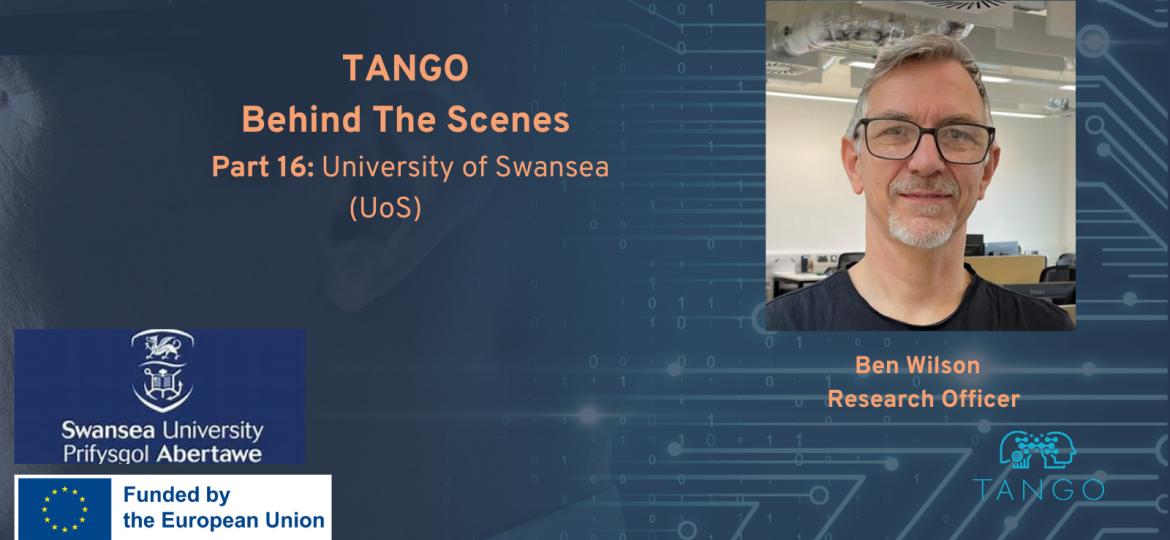
TODAY, IN THE ‘BEHIND THE SCENES’ SERIES, WE’RE SPEAKING WITH RESEARCH OFFICER AT UNIVERSITY OF SWANSEA (UOS), BEN WILSON. BEN WILL BE TELLING US ABOUT HIS ROLE AND THE ROLE OF UOS WITHIN THE TANGO PROJECT.
Thanks for speaking to us today. Could you start by introducing yourself and telling us where you are based?
I’m Ben Wilson. I’m a Research Officer at the University of Swansea, in Computer Science. And my background is that I’ve worked in many different places, most recently, for a number of years in the health service in the UK, and I’ve been interested in clinical information and outcomes. And my PhD work is with an emergency medical service in Wales. And I’m really interested in the whole idea of human-computer hybridity and decision-making.
Has anything surprised you in the first months of the project?
Well first, let me explain who I work with. I work most closely with colleagues from the University of Pisa, Alessio Malizia, Tommaso Turchi and Daria Mikhaylova and from South Wales, Alan Dix from Cardiff Metropolitan University and Matt Roach from Swansea University. Those are really great people. So it wasn’t any surprise to find it enjoyable to work with them. But – and I guess maybe this is a bad confession – I’ve been surprised about how welcoming people have been to me from the wider project. I’ve found it being a very encouraging space to be in. And discussions that I’ve had with people have made me feel like I have something to contribute. Whereas, at the beginning of the project, I was thinking, what can I do? All these really clever people! They’ve done all these things! But apparently people think I can help. My background working outside of academia is valued. And my research on situated human users of AI, too. So I just feel very much included, which is a good thing.
What do you like most about your role?
I get to discuss work with really significant researchers. The other day, I was in a discussion with Alan Dix. If you know anything about human-computer interaction as a subject, you’ll know of Alan. He’s someone who thinks deeply about the relationship between humans and computers at the level of the individual as well as at the level of society. And it’s really stimulating to be able to be in these conversations. I get the sense that I’m frequently on the same page about the need to re-frame some of the discussions around AI to get us thinking both critically and creatively about how we take research forward. And that feels like a really exciting prospect. I mean, it makes me think there’s something completely new that could come out of the Tango project.
How would you describe TANGO with three words only?
Challenging, ambitious, exciting.
What is one key thing you have learned from working on TANGO so far?
Teams can work at different levels. In the Tango project, it feels as though people identify themselves with the larger team, at the same time as being part of a smaller team, which is a really interesting and very exciting dynamic to be part of.
Thank you for taking the time to speak to us, Ben. We look forward to more updates from the team at University of Swansea.
To keep up to date with the Behind the Scenes series and all TANGO updates, make sure to follow us on TANGO (@TANGO_horizon) / X (twitter.com) and TANGO LinkedIn